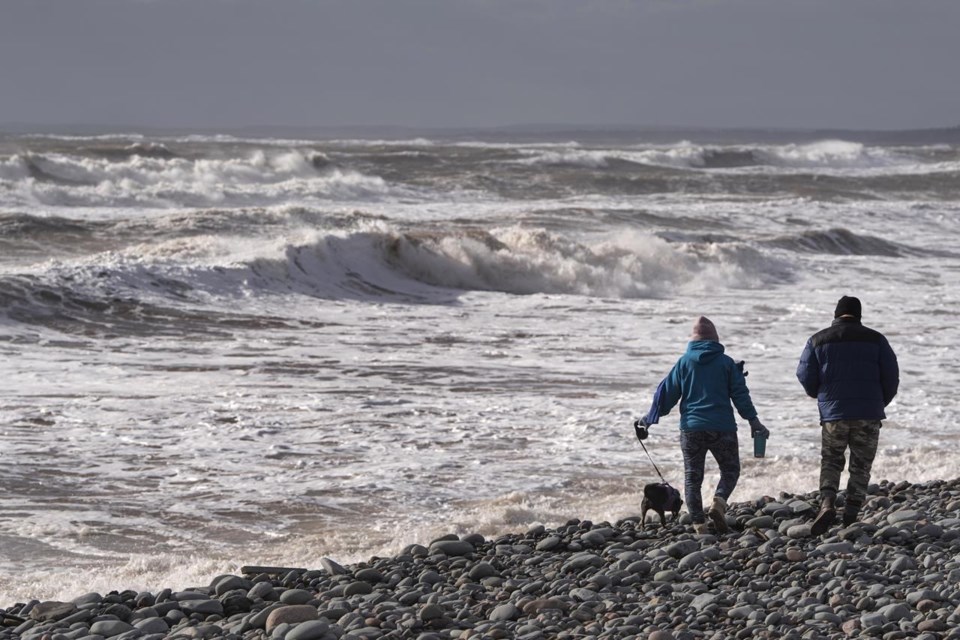HALIFAX — Nova Scotia’s opposition parties are dismissing a government survey that they say fails to address the primary question of whether coastal property owners want a law protecting the province’s coastline.
The survey by Group ATN Consulting was conducted between Sept. 29 and Nov. 8 of last year, but a summary of the results was only posted to the government’s website on Friday.
In February, the Progressive Conservative government said it would shift responsibility for coastal protection to municipalities and property owners instead of proclaiming the Coastal Protection Act.
In an interview, Liberal Leader Zach Churchill said the newly released summary doesn’t explain the Tories' rationale for abandoning the act, which was adopted by the former Liberal government with all-party support in 2019.
“It certainly doesn’t explain why they didn’t move forward with the Coastal Protection Act,” said Churchill. “I think this is concerning, because it is an issue of protecting people and property long term.”
The survey report summarizes the results of eight questions asked of coastal land owners. A total of 1,072 coastal property owners participated in the consultation — a response rate of just 2.7 per cent. Environment Minister Tim Halman had previously said the government contacted 40,000 property owners to tell them how to participate in the consultation process.
On the key question of whether new rules were needed to protect new buildings or new renovations from coastal erosion, flooding and rising sea levels, 629 respondents said rules were needed while 236 opposed such rules and 198 said they were uncertain.
When asked who should decide on new rules, 686 respondents said it should be provincial and municipal governments, while 418 said property owners should decide and 280 suggested a collaborative approach involving governments, insurance companies and property owners.
Like Churchill, NDP Leader Claudia Chender thought it was strange the survey did not directly address the Coastal Protection Act, although there was a reference to it on a question about land zoning.
“I think the way in which these consultations were presented was not about whether the government should proclaim the act but it was about the content of the regulations,” said Chender. “We have a real bait and switch.”
Marla MacLeod, director of programs at the Halifax-based Ecology Action Centre, pointed out that the survey was part of a third round of consultations by the government and produced no surprises with a majority of people in favour of new regulations.
“It was completely unnecessary, and then they (government) completely disregarded the results, so what were they looking for?" MacLeod asked.
Halman defended his government's approach and said the results of the consultation helped inform the decision.
“I think we are implementing a very balanced, comprehensive plan that will support the municipalities and local decision-making,” he said after a cabinet meeting last Thursday.
The government’s plan contains 15 actions, including one that offers homeowners and municipalities access to an online hazard map showing the worst-case scenario for sea level rise along the coast in the year 2100.
Earlier this month, the government also announced $476,345 over three years to fund a new coastal protection co-ordinator position for the Nova Scotia Federation of Municipalities to help municipalities that lack the resources to deal with coastal development issues.
This report by The Canadian Press was first published April 24, 2024.
Keith Doucette, The Canadian Press



